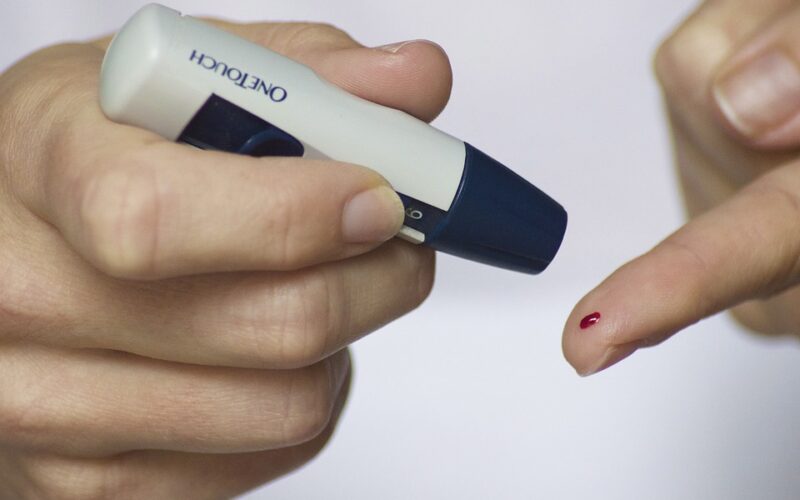Living with Diabetes
If you are one of the millions of people living with diabetes, managing this chronic condition can be overwhelming. You may find yourself feeling frustrated when it comes to staying on track with your treatment and following a healthy lifestyle to keep your blood glucose levels stable.
But never fear, managing diabetes doesn't have to be an insurmountable task. With proper education, support from healthcare professionals and friends, and an effective plan for monitoring your diet and activity level, you can more easily flow in sync with the needs of your body.
Let's discuss the steps that make up our successful approach to controlling diabetes so that you can start taking control of yours today. Many topics you can research are vegan malnutrition reversal therapies, glucose monitoring aids, smart medication planning strategies and psychological wellbeing practices for diabetics.
Diabetes and its Symptoms
Diabetes is a serious, lifelong condition that affects how your body regulates sugar in the blood. It can result in serious health complications such as heart disease, stroke and kidney damage if left untreated.
Knowing the common symptoms of diabetes can help you determine if you should get tested for the condition. These include frequent urination, excessive thirst and an unusual increase in hunger. You may also feel tired more often than usual or experience blurry vision. If you notice any of these signs, it's important to speak with your doctor as soon as possible so they can perform a blood test and make sure other potential causes are ruled out.
With proper detection and follow up care, diabetes can be effectively managed and its long term consequences avoided.
Eating Healthy to Manage your Blood Sugar Levels
Eating healthy is a key part of managing your blood sugar levels. When we eat complex carbohydrates, such as whole grains, fruits, vegetables and legumes, our body breaks them down and releases energy slowly throughout the day.
This helps to prevent blood sugar spiking and crashing. On the other hand, simple carbs like white bread or candy contain less fibre and are digested much faster. Eating these limitedly can help manage blood sugar levels and should be balanced in your diet with more complex carbs.
Lastly, adding lean proteins such as skinless poultry or tofu to meals can further reduce surges in blood sugar and should be viewed as a valuable asset in any healthy diet.
Physical Activity
Physical activity is essential to managing diabetes, as it helps to keep blood sugar levels within a healthy range. Regular activity boosts insulin sensitivity and can help lower the risk of cardiovascular disease, stroke, high blood pressure and other diabetes-related complications.
It can also help to maintain a healthy weight, improve mood and sleep and reduce stress. Engaging in at least 30 minutes of moderate exercise for five days each week can make a huge difference for diabetics who want to minimise the long term side effects brought on by the condition.
Talk with your doctor about what type of physical activity is safest for you and get started on incorporating it into your weekly routine today!
Medication and Supplements
Managing diabetes is essential to maintaining quality of life. Medication and supplements are important aspects of that management; in addition to making healthy lifestyle choices and regularly monitoring blood sugar levels, these may be recommended as additional support.
It's best to talk with a doctor or a nutritionist before adding medications or supplements as part of your diabetes treatment plan. They can provide advice on doses, ingredients, side effects and any other information needed to understand exactly how the medication or supplement works.
As different combinations can produce varying results, it’s important to consider the great potential for positive outcomes that medication can offer you if prescribed and taken correctly.
Monitoring Your Blood Sugar Levels
Monitoring your blood sugar levels is an important part of taking care of your health and managing any conditions you may have. Generally speaking, how often you check your blood glucose depends on a few different factors, like whether or not you have diabetes, what your blood glucose numbers tend to be, and the treatment plan that you and your doctor decide is best for you.
That said, people with diabetes typically need to check their levels at least four times per day, especially those receiving insulin injections in order to stay within their target range.
Moreover, by testing regularly, you'll be able to identify patterns in how food, stress and physical activity affect your blood glucose levels so that you can take steps to make adjustments when needed.
Building Your Support System
When it comes to managing diabetes, having a strong support system is key. Developing a network of friends, family, and medical professionals can provide beneficial guidance and emotional support throughout the struggles that arise with living with the condition.
Seek out people who understand your situation; those who are willing to listen, encourage and motivate you when times feel their toughest. Rely on them for help in making healthy lifestyle choices like proper nutrition and regular physical activity.
Additionally, ask for advice if you're not sure how to handle any complications or difficult decisions associated with diabetes.
Remember, having strong relationships means being able to lean on each other when things don't go as planned, both mentally and physically. Building your supportive circle will make all the difference in successfully managing diabetes.


























